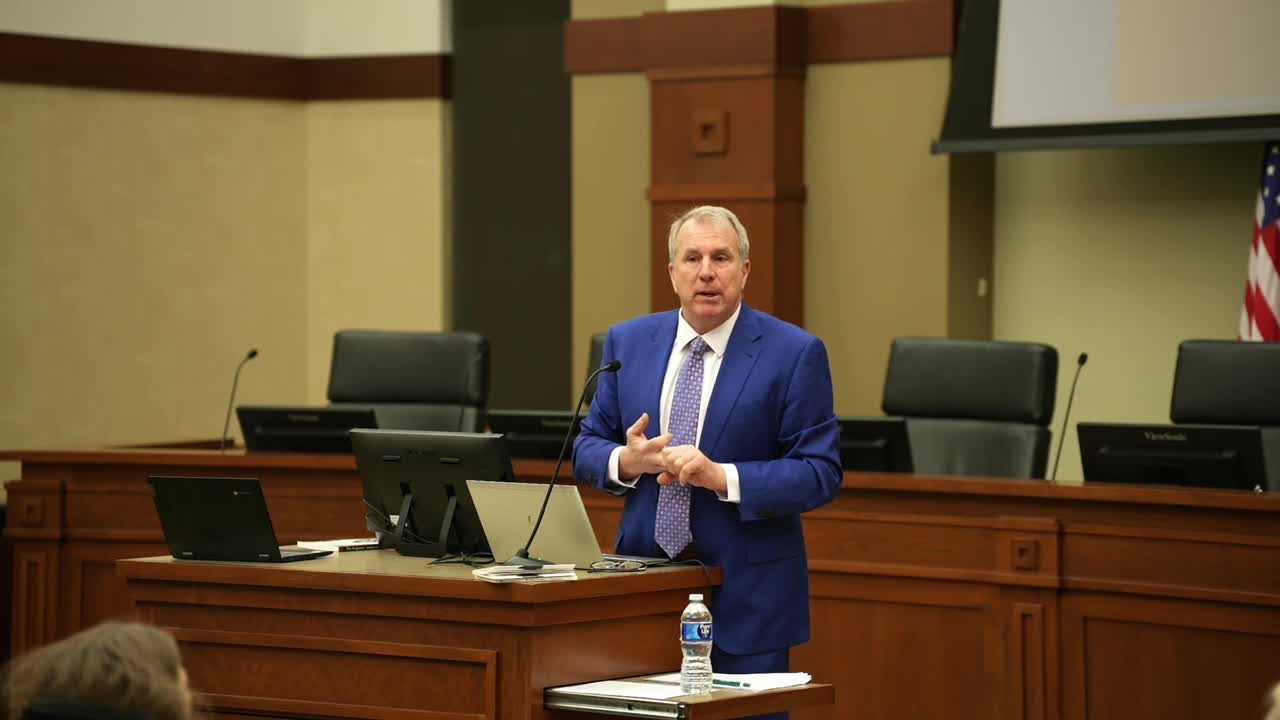Discussion on Historical Genocides Ignites Debate on Media and Political Messaging
November 24, 2024 | Other , Citizen Journalism , 2024 -2025 Utah Citizen Journalism, Elections, Utah
This article was created by AI summarizing key points discussed. AI makes mistakes, so for full details and context, please refer to the video of the full meeting. Please report any errors so we can fix them. Report an error »

In a recent government meeting held in Highland, Utah, discussions centered around the complex narratives surrounding Ukraine and the impact of misinformation on public perception. The atmosphere was charged as participants delved into the sensitive topic of historical atrocities, drawing parallels between past and present conflicts.
One speaker highlighted the tragic events in Bucha and Zoom, where innocent lives were lost, suggesting that these instances should be viewed with the same gravity as recent violence in Israel. This comparison sparked a broader conversation about the responsibility of media and public figures in shaping narratives that resonate with the public. The speaker, reflecting on his conservative upbringing, expressed concern that inflammatory rhetoric could alienate potential voters, particularly those who might be swayed in upcoming elections.
He shared a personal anecdote about his father, a Vietnam veteran, who had stopped watching popular conservative commentator Tucker Carlson due to statements that felt disconnected from reality. This sentiment underscored a critical point: the need for political discourse to remain grounded in truth to avoid pushing away moderate voices.
The discussion also touched on historical awareness, particularly regarding the Holodomor, a devastating famine in Ukraine during the early 1930s that resulted in millions of deaths. The speaker lamented that many Americans are unaware of this tragedy, attributing the lack of knowledge to media biases and historical narratives that have often overlooked the suffering of Ukrainians. He argued that this gap in understanding is detrimental, as it prevents a full appreciation of the complexities surrounding current geopolitical tensions.
As the meeting concluded, the urgency of addressing misinformation and fostering a more informed public discourse was clear. Participants left with a renewed commitment to engage in conversations that honor historical truths while navigating the challenges of contemporary politics. The implications of these discussions extend beyond the meeting room, highlighting the critical role of accurate information in shaping public opinion and electoral outcomes.
One speaker highlighted the tragic events in Bucha and Zoom, where innocent lives were lost, suggesting that these instances should be viewed with the same gravity as recent violence in Israel. This comparison sparked a broader conversation about the responsibility of media and public figures in shaping narratives that resonate with the public. The speaker, reflecting on his conservative upbringing, expressed concern that inflammatory rhetoric could alienate potential voters, particularly those who might be swayed in upcoming elections.
He shared a personal anecdote about his father, a Vietnam veteran, who had stopped watching popular conservative commentator Tucker Carlson due to statements that felt disconnected from reality. This sentiment underscored a critical point: the need for political discourse to remain grounded in truth to avoid pushing away moderate voices.
The discussion also touched on historical awareness, particularly regarding the Holodomor, a devastating famine in Ukraine during the early 1930s that resulted in millions of deaths. The speaker lamented that many Americans are unaware of this tragedy, attributing the lack of knowledge to media biases and historical narratives that have often overlooked the suffering of Ukrainians. He argued that this gap in understanding is detrimental, as it prevents a full appreciation of the complexities surrounding current geopolitical tensions.
As the meeting concluded, the urgency of addressing misinformation and fostering a more informed public discourse was clear. Participants left with a renewed commitment to engage in conversations that honor historical truths while navigating the challenges of contemporary politics. The implications of these discussions extend beyond the meeting room, highlighting the critical role of accurate information in shaping public opinion and electoral outcomes.
Don't Miss a Word: See the Full Meeting!
Go beyond summaries. Unlock every video, transcript, and key insight with a Founder Membership.
✓
Get instant access to full meeting videos
✓
Search and clip any phrase from complete transcripts
✓
Receive AI-powered summaries & custom alerts
✓
Enjoy lifetime, unrestricted access to government data
30-day money-back guarantee


